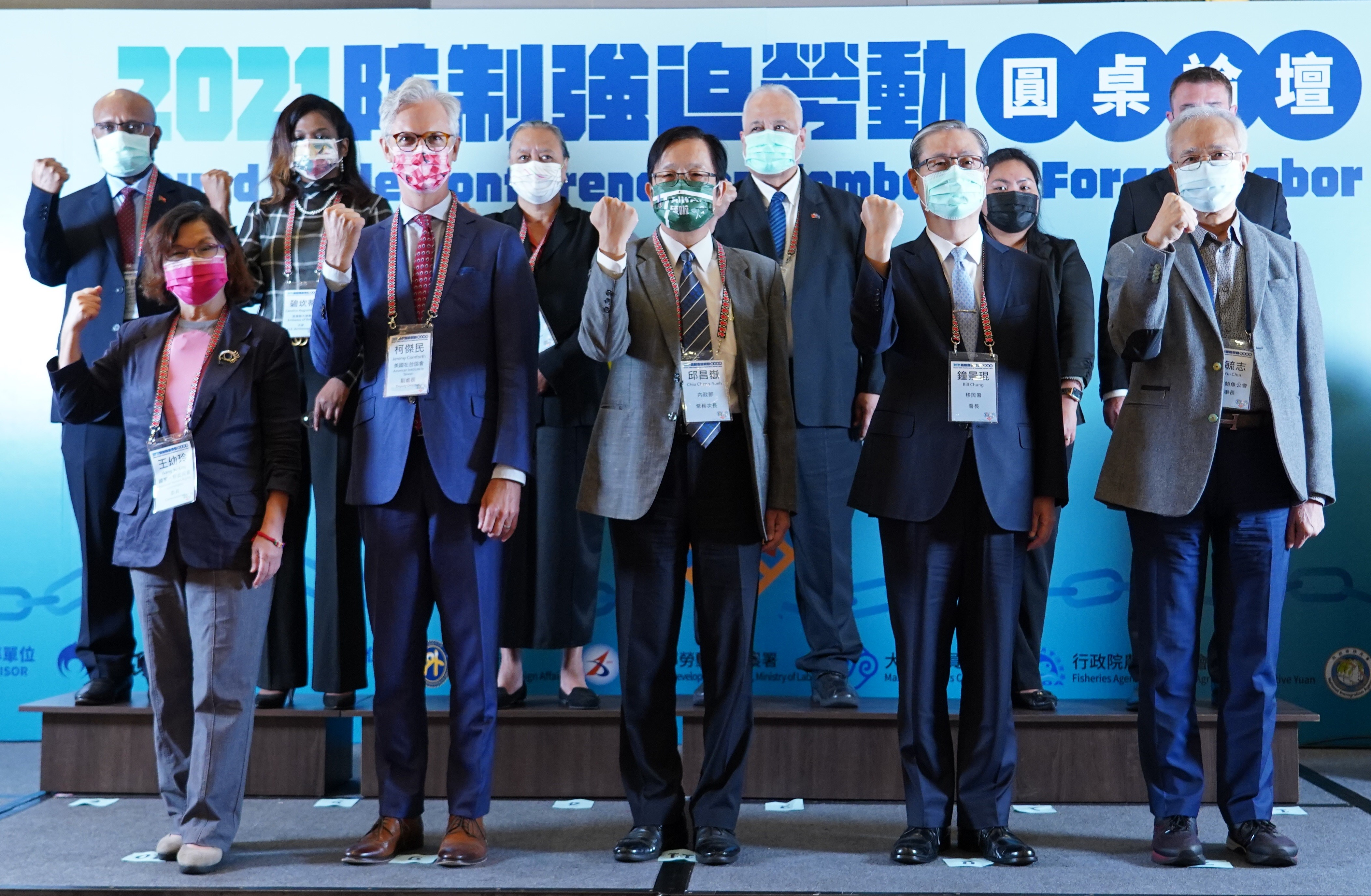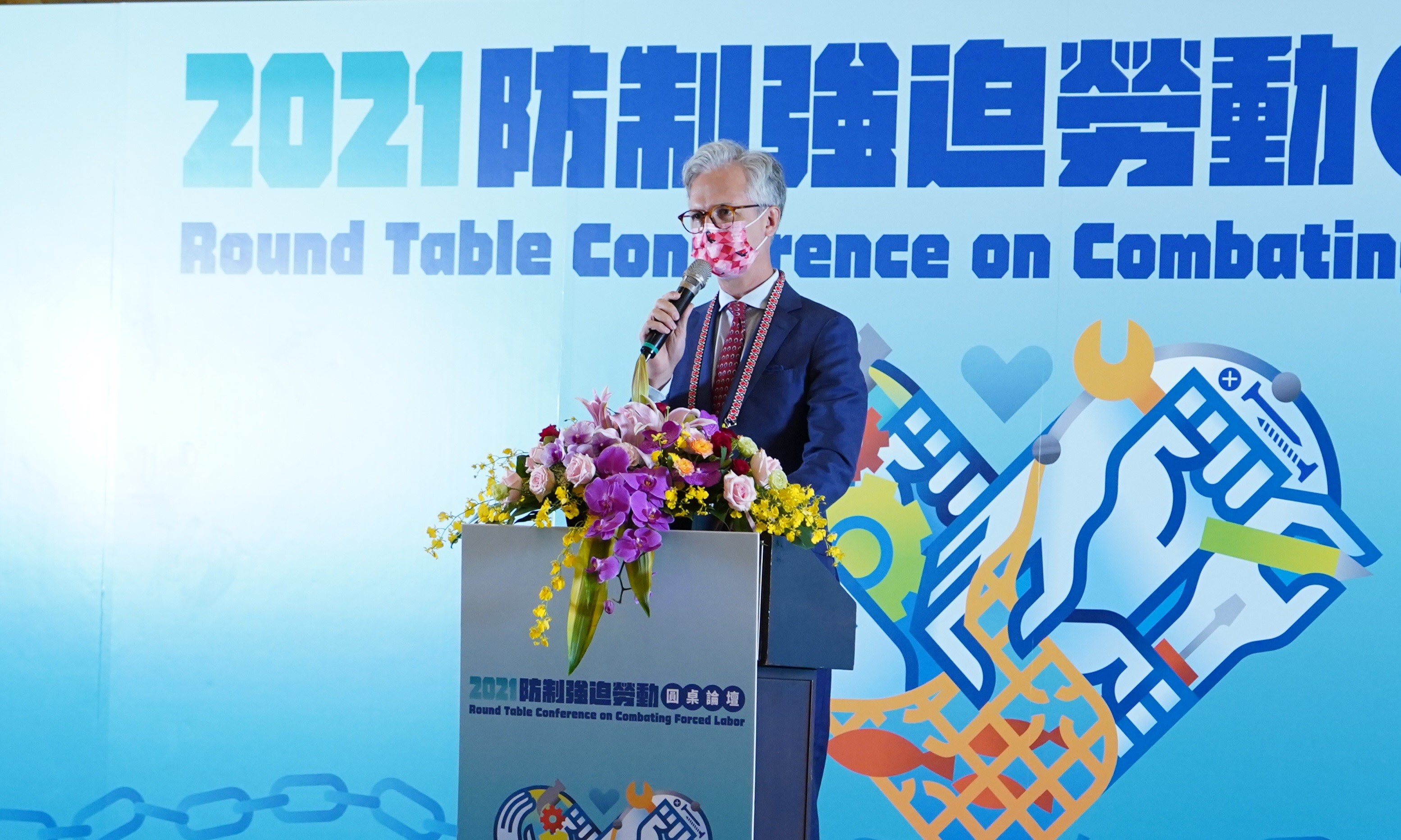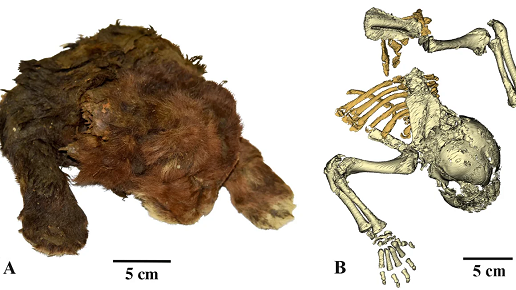Deputy Director Jeremy Cornforth (柯傑民) of American Institute in Taiwan (AIT) remarks at the 2021 Round table conference on combating forced labor held by National Immigration Agency (NIA) on October 15. Many guests and officials from numerous countries are also invited to combat issues such as human trafficking, forced labor from international supply chains and the labor rights of fishermen.

A group photo of the guests. From the left: Control Yuan Officer Wang You Ling (王幼玲), AIT Deputy Director Jeremy Cornforth (柯傑民), Administrative Deputy Minister of Ministry of the Interior Qiu Chang Yue (邱昌嶽), Minister of NIA
Zhong Jing Kun (鐘景琨), Tuna Union President Lin Yu Zhi (林毓志) ; back row from left: Papua New Guinea representative Tommy Kambu Kunji (康德銘), the Ambassador of Belize Candice Pitts (碧坎蒂), Ambassador of Tuvalu Limasene Teatu (涂莉梅), Ambassador of the Republic of Nauru Jarden Kephas (凱法斯), Temporary representative of Marshall Islands Mrs. Anjanete Celles Anjel, and representative of the Czech Republic, Mr. Patrick Rumlar. (Photo / Provided by National Immigration Agency)
Jeremy Cornforth mentions, the fight against all forms of trafficking in persons, including forced labor, is a leading foreign policy priority for the United States. That is why since 2001, the Department of State has published an annual Trafficking in Persons Report, which this year was released in July.
Both Taiwan and the United States were included for a 12th consecutive year at Tier 1, the highest tier evaluated in the report. However, that does not mean that our societies are free from the scourge of human trafficking - only that our efforts meet the minimum standards as defined by U.S. law. We both have a lot of work to do to continue improving our efforts to combat trafficking, but this is an important part of the values that Taiwan and United States share.
Read More: Free movies! Taipei International Labor Film Festival launches 4 films about migrant workers
In particular, the United States has renewed and increased its efforts to tackle forced labor around the world. Whether it is cotton or polysilicon material produced in Xinjiang, palm oil from Malaysia, or fish from Taiwan, it is our intention to ensure that goods sold in the United States are not produced with forced labor. This is also a global trend: in June, the Group of Seven - the world's leading advanced economies -jointly pledged to eliminate forced labor from international supply chains.
President Biden has committed the United States to building secure and resilient supply chains among like-minded economies by working more closely with trusted friends and partners that share our values. This includes an important role for Taiwan, one of America's top trade partners. AIT will work with all of you and other partners to realize that vision, including by ensuring that intermediate goods and finished products flowing through Taiwan are not tainted by forced labor.
Jeremy Cornforth states that he is confident that with the strong political will from Taiwan's government and business leaders and the support and creativity of civil society organizations and concerned citizens, we can find new and innovative ways to tackle this challenge. In the coming months, AIT will convene a series of multistakeholder workshops to share international perspectives and best practices to ensure that our shared efforts to prevent forced labor in Taiwan's fishing sector are targeted and effective.
In that spirit, I am pleased that today we will hear from experts from U.S. Customs and Border Protection, as well as a leading American technology firm, Hewlett Packard Enterprise, about the approaches the American government and private sector are applying to prevent products of forced labor from reaching U.S. supply chains and markets. Thank you, and I look forward to listening and learning together with you all.







